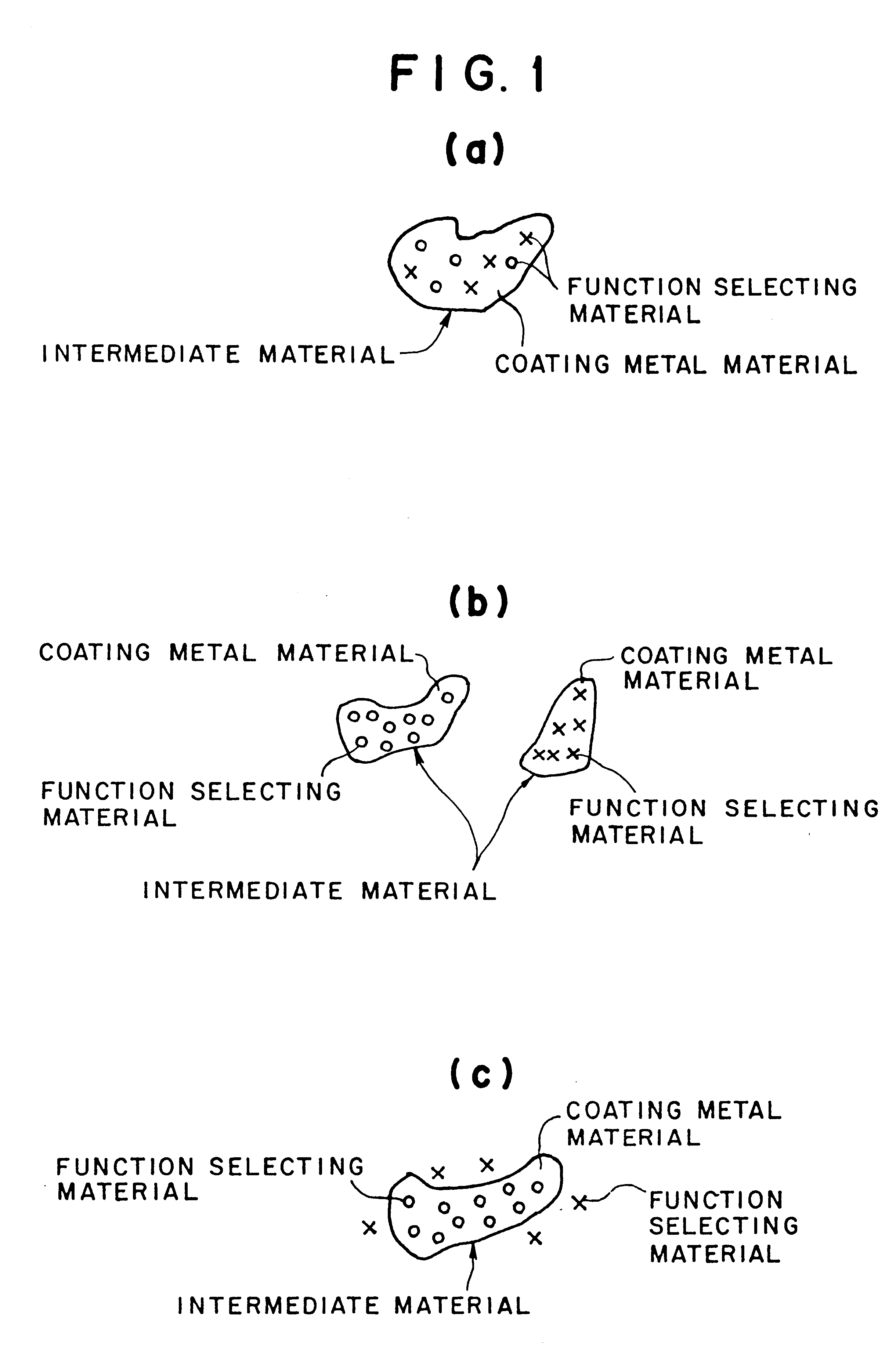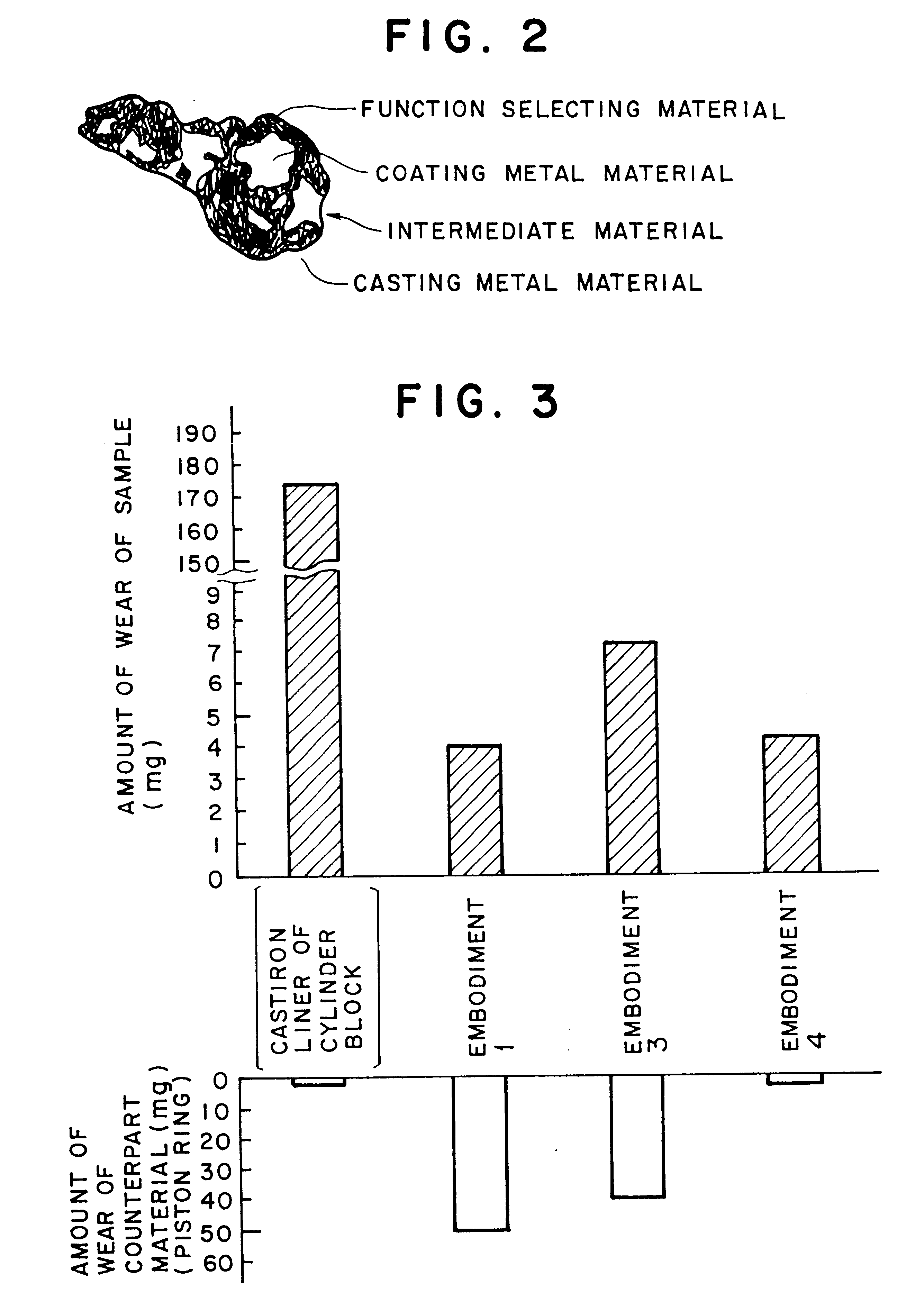Method of casting a product
a technology of product casting and casting method, which is applied in the direction of gearing, pistons, and stators, etc., can solve the problems of poor machinability of product casting as cast, high production cost, and deterioration of machinability, and achieve the effect of easy and inexpensive casting
- Summary
- Abstract
- Description
- Claims
- Application Information
AI Technical Summary
Benefits of technology
Problems solved by technology
Method used
Image
Examples
example 1
SiC having a uniformly distributed particle size of around 5 .mu.m was mixed into a molten aluminum alloy (ADCl2) by 10% by weight, dispersed in the liquid phase and converted into a granular intermediate material having a uniformly distributed particle size of 200 (through) to 300 .mu.m through the atomization process. 1200 g of the intermediate material was kneaded by adding a solution in which 500 g of polyvinyl acetate resin was dissolved in 600 g of methanol. The intermediate material was coated on the surface of a previously formed shell core made of zircon sand by a thickness of approximately 4 mm, the preset core was installed at a predetermined location of a mold cavity and a cylinder block was cast by the die-cast process using the aluminum alloy (ADCl2). The casting pressure was set to 50 MPa.
Then, the cast product was taken out from the mold, the preset core was taken out from the cast product and thereafter, the thickness of the resulting function selecting layer (wear ...
example 2
A granular intermediate material having a uniformly distributed particle size of around 300 .mu.m in which primary crystal silicon having a uniformly distributed particle size of around 10 .mu.m was precipitated through the atomization process, was prepared by using a molten metal of Al-20% silicon alloy, 300 g of the intermediate material was added with 13 g of phenolic resin and the intermediate material was kneaded for about 1 minute. The intermediate material was adheringly coated on the surface of a preset core made of iron, the preset core was installed at a predetermined location in a mold cavity, the casting was performed as in Example 1 and the thickness and the like of the resulting function selecting layer (wear resistant layer) formed on the surface of the cast product at a portion thereof where the preset core had been disposed, were measured.
example 3
A granular intermediate material having a uniformly distributed particle size of around 300 .mu.m added with phenolic resin, was adheringly coated on the surface of a preset core made of iron and the casting was performed as in Example 1 except using SiC having a uniformly distributed particle size of around 10 .mu.m, the thickness of the resulting function selecting layer (wear resistant layer) formed on the surface of the cast product at a portion thereof where the preset core had been disposed, was measured and the wear resistance test was carried out.
PUM
| Property | Measurement | Unit |
|---|---|---|
| size | aaaaa | aaaaa |
| size | aaaaa | aaaaa |
| particle size | aaaaa | aaaaa |
Abstract
Description
Claims
Application Information
 Login to View More
Login to View More - R&D
- Intellectual Property
- Life Sciences
- Materials
- Tech Scout
- Unparalleled Data Quality
- Higher Quality Content
- 60% Fewer Hallucinations
Browse by: Latest US Patents, China's latest patents, Technical Efficacy Thesaurus, Application Domain, Technology Topic, Popular Technical Reports.
© 2025 PatSnap. All rights reserved.Legal|Privacy policy|Modern Slavery Act Transparency Statement|Sitemap|About US| Contact US: help@patsnap.com



